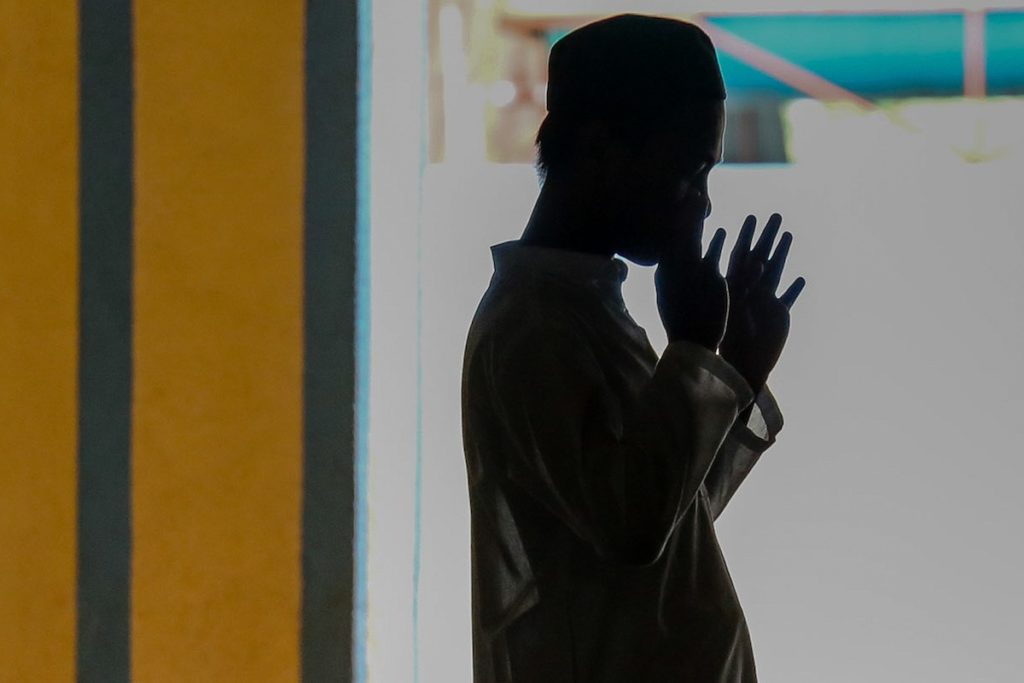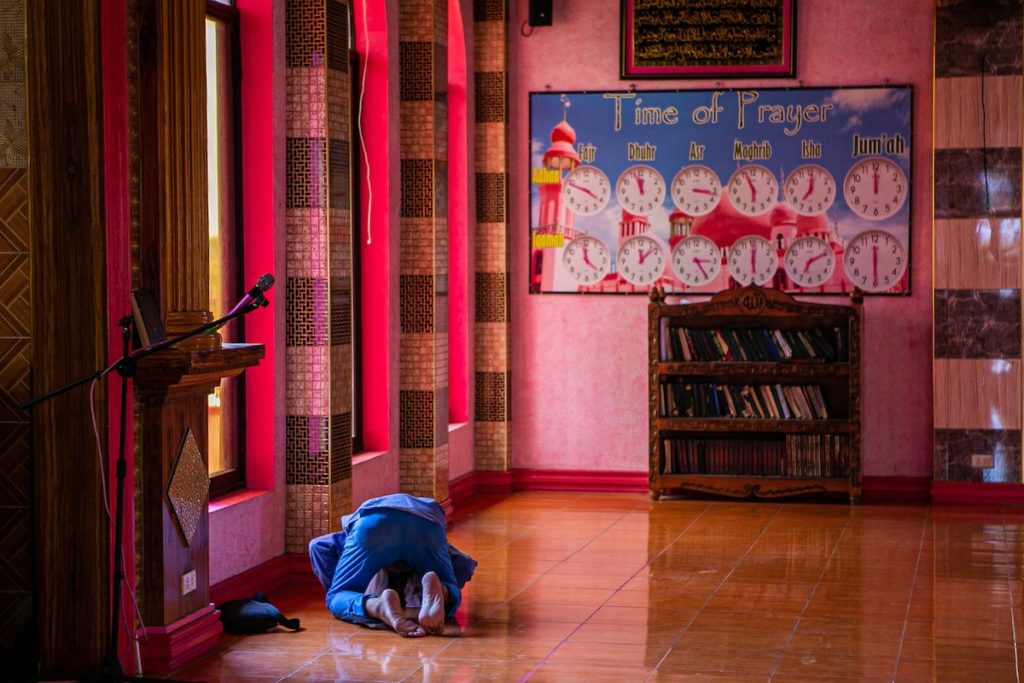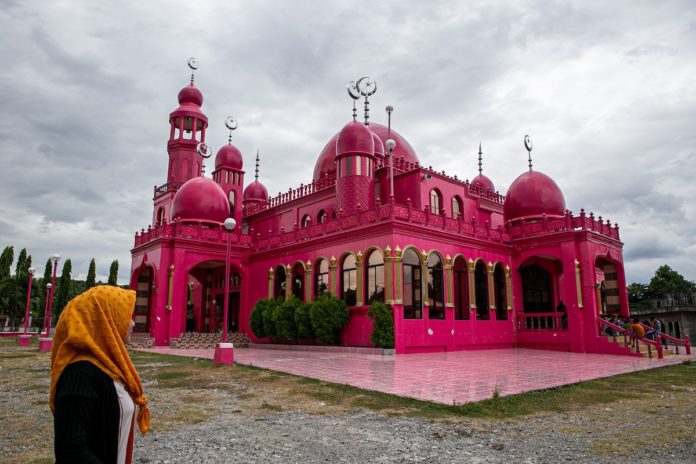Amid quarantine restrictions, the Philippines’ estimated 10.7 million Muslim population is ready to welcome the holiest month of the Islamic calendar.
Religious leaders have ordered the suspension of the congregational Taraweeh prayers in mosques, so the faithful are preparing their own places of worship in their homes.
Ahead of the start of Ramadan, Ismael Sadain, 35, arranged his small room in the southern Philippine city of Cotabato where he will hold his daily prayers.
He took out his phone and opened an app to determine the direction of the sacred Kaaba.
“I still have to do it properly even just at home,” he said, adding that he will surely miss the sermons and recitations of the Koran in the mosque.
“I can still watch and hear them online,” Sadain assured himself. He has already accepted that this year’s observance of Ramadan will be “different.”
“But we can look at it as an opportunity to intimately devote our time to Allah,” he said. “I will consider this month as a month of Itikaf,” he added.
“Itikaf” is an Islamic practice of isolating oneself in a Masjid or at home with the intention of solely dedicating time to the worship for a certain number of days.
In the town of Datu Saudi Ampatuan in Maguindanao province, Guiamelan Sajutin has been preparing the “usual things” that she does during Ramadan.
“I prepare food for the family and for our neighbors. I spend the day preparing Suhoor and Iftar,” she said.
“Suhoor” is the food eaten before the start of Fajr, or the early morning prayer, while “Iftar” is the food eaten after sunset to break the fast.
Sajutin this year’s food will be “very simple.”
“I am not sure if I can cook enough amount of food for our neighbors because supply is very limited now,” she said.

Sajutin’s husband is an Imam who preaches in the mosque duration Ramadan. “This month, he will still preach but only with me and our three children,” she said.
Ramadan is also known as the month of the Koran, and attending the Taraweeh prayers in mosques is a way for Muslims to complete the recitation of the Holy Book.
“Not everybody can read the Quran,” said Sajudin. “That’s why people have to hear it inside the mosque during Ramadan,” she added.
The recitation of the Koran during the month of Ramadan is “Mustahab,” or an action that is rewarded but not punishable if not performed.
Fasting came early
“Sawm” or fasting is the fourth of the Five Pillars of Islam. It is an obligation for all able Muslims, except for those who are unable to fast due to “certain legitimate reasons.”
Those who are exempted from fasting are physically and mentally ill persons, travelers, women during menstruation, lactating and expectant women, elderly people, and children who have not reached puberty.
“Fasting came early this year, and everybody is obliged because of the lockdown,” said Sajutin.
The strict implementation of the “enhanced community quarantine” in the Philippines hindered people from leaving their homes and closed business establishments.
“Many people in our community cannot go to work,” said Sajutin, adding that many in the community are daily-wage earners and farmers.
She said people are relying on food aid from the government. “Everyone has been fasting for days even before Ramadan because food is scarce,” she added.

A man is seen praying inside the Masjid Dimaukom in Datu Saudi Ampatuan town in the southern Philippines in this photograph taken in February. (Photo by Mark Saludes)
Amanah Busran Lao of the National Commission on Muslim Filipinos admitted that there are challenges in the observance of Ramadan this year.
She, however, said it is also the time of year when Muslims are expected to help the poor.
“Ramadan teaches us to be more generous. We must remember that we are responsible for our neighbors, especially if we have something to give,” she said.
The breaking of the fast at the end of the day is usually a communal event when religious leaders host iftars for the poor.
“This year, we have to avoid large gatherings and we will have Suhoor and Iftar with our families at home,” said Busran Lao.
In other countries, Ramadan activities that invite people to gather are banned. In Egypt, Iftars and charity tables are not allowed.
The King of Saudi Arabia has ordered the shortening of Taraweeh prayers in mosques and should be held without the public in attendance.
Bazaars that sell food and non-food items during Ramadan are temporarily prohibited in Singapore, Brunei, and Malaysia.
Authorities in Pakistan allowed congregational prayers but devotees have to keep a distance of two meters from each other.
“Many of us are used to merry-making during Ramadan. Now, we experience food restrictions even during Iftar and we are confined in our homes,” noted sociologist Maylanie Sani-Boloto.
“But this is not a new normal,” she said, adding that Ramadan is “meant to devote ourselves to worship Allah.”
She said that without the “worldly things that distract us,” people have more time to pray and worship God.









